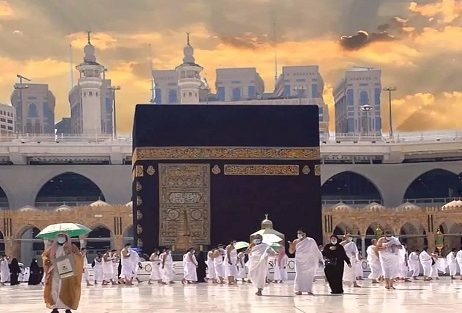The pilgrimage to Makkah is so much more than a trip; it is a spiritual transformation. While the physical steps and rituals are essential, the true essence of Hajj and Umrah lies in the profound spiritual purification and inner peace they bring.
Here, we explore the deep, life-changing benefits that await those who embark on this sacred journey.
Forgiveness of Sins
This is one of the most powerful motivations for any pilgrim. The Prophet Muhammad (peace be upon him) said that “whoever performs Hajj and does not commit any obscenity or transgression shall return [free of sins] as he was on the day his mother gave birth to him.” Umrah, too, is a source of immense reward, as it is an expiation for the sins committed between two pilgrimages. The journey is an opportunity to wipe the slate clean and start anew.
A Deeper Connection to Allah
Being in Makkah, the center of the Islamic world, creates an atmosphere unlike any other. Standing before the Ka’bah and performing the rituals brings a unique sense of humility and closeness to your Creator. The pilgrimage strips away the distractions of daily life, allowing you to focus completely on your purpose and strengthen your bond with Allah (SWT).
Unity and Equality
One of the most moving aspects of Hajj and Umrah is the visible unity of the Muslim Ummah. Millions of people, from different nationalities, cultures, and socioeconomic backgrounds, stand shoulder to shoulder, all dressed in the same simple Ihram. This powerful display of unity is a humbling reminder that all believers are equal in the eyes of Allah.
Patience and Self-Discipline
The physical and mental demands of the pilgrimage—the heat, the crowds, the long walks—are a test of patience and endurance. Navigating these challenges with a positive attitude and for the sake of Allah is an act of worship itself. It builds character, fosters self-discipline, and teaches you to rely on patience and trust in Allah’s plan.
Following in the Footsteps of the Prophets
The rituals of Hajj and Umrah are a profound re-enactment of the traditions of Prophet Ibrahim, his wife Hajer, and their son Prophet Ismail, as well as Prophet Muhammad (peace be upon them). This deep connection to prophetic history makes the pilgrimage feel personal and sacred, reminding you that you are part of a continuous chain of faith stretching back thousands of years.



